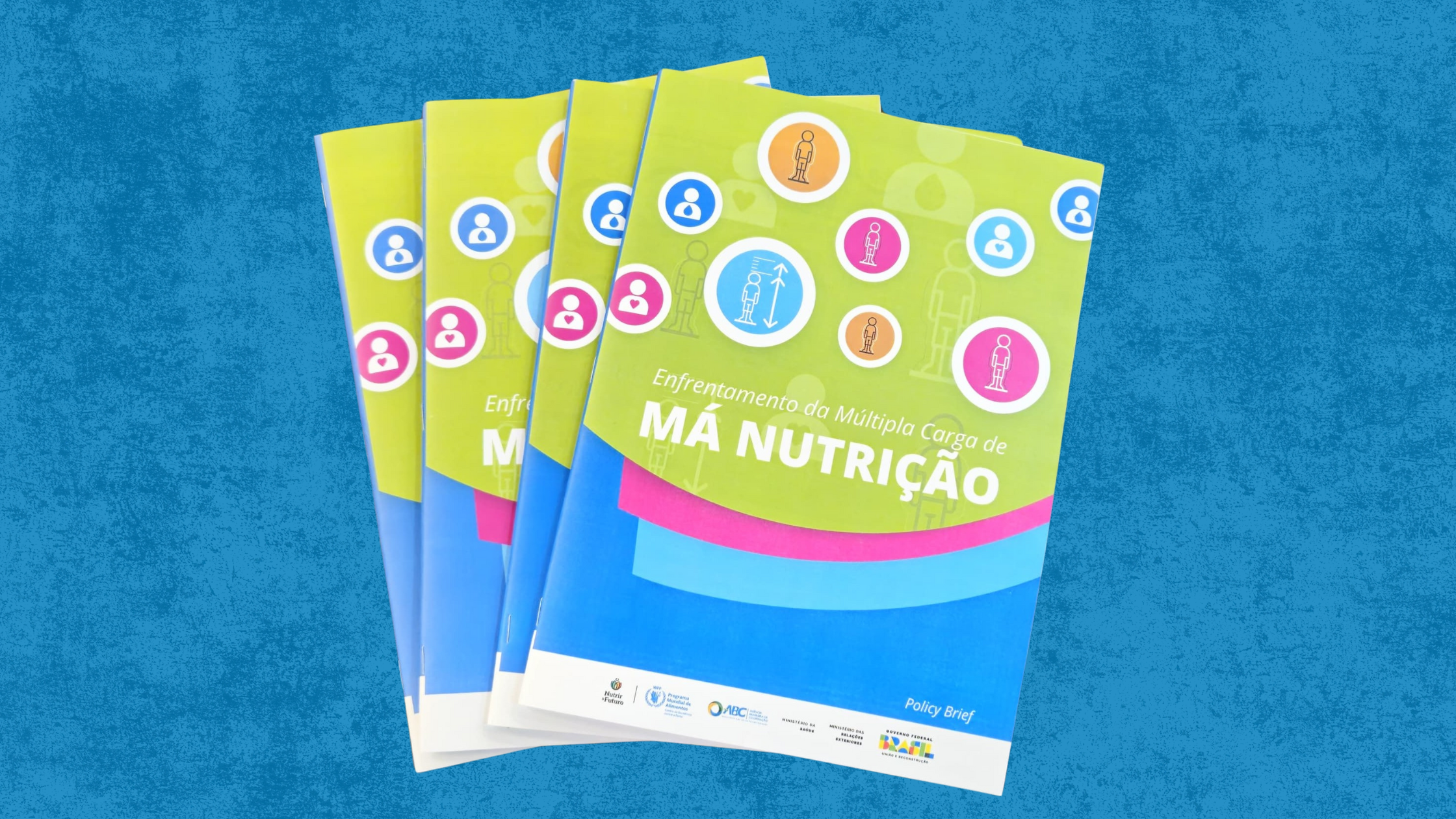 The Nurture the Future Project concluded its first stage this week during the 6th National Research Meeting on Food and Nutrition Sovereignty and Security (6th ENPSSAN), at the State University of Rio de Janeiro (RJ). During the event, the publication ‘Tackling the Multiple Burden of Malnutrition’ was launched, along with a brief presentation of results, challenges and perspectives on food and nutrition actions in each country.
The Nurture the Future Project concluded its first stage this week during the 6th National Research Meeting on Food and Nutrition Sovereignty and Security (6th ENPSSAN), at the State University of Rio de Janeiro (RJ). During the event, the publication ‘Tackling the Multiple Burden of Malnutrition’ was launched, along with a brief presentation of results, challenges and perspectives on food and nutrition actions in each country.
Among the results presented were discussions on the development and implementation of food guides, the front labelling of food products and strategies to combat childhood obesity in the improvement of food and nutrition policies in the countries involved.
The project is the result of a partnership between the WFP Centre of Excellence against Hunger in Brazil, the Brazilian Cooperation Agency (ABC), and the Ministries of Health of Brazil, Colombia and Peru, and promoted the exchange of experiences and the identification of joint actions to combat malnutrition in the three countries over the course of three and a half years.
Eliene Sousa, one of the project coordinators at the World Food Programme (WFP) Centre of Excellence against Hunger in Brazil, said that the presentation of the results of the project carried out by Brazil together with Colombia and Peru was so successful that several countries, such as Uruguay, Argentina, Mexico and Chile, showed interest in joining a new phase.
“It’s proof that the importance of tackling malnutrition in its different forms is a priority”, she said. A new stage of the project is being studied for more direct action on food and nutrition surveillance and tackling nutritional deficiencies.
Initiatives such as Nourish the Future are fundamental, as they support the creation and improvement of public policies in the area of nutrition, with a special focus on schoolchildren. For the WFP Centre of Excellence, international collaboration on projects of this kind is always beneficial: on the one hand, it facilitates the exchange of experiences and the implementation of shared solutions; on the other, it allows for the continuous review and improvement of nutrition programmes.
Riffat Iqbal, responsible for this project at the Brazilian Cooperation Agency (ABC), spoke about the importance of the project in the context of South-South cooperation. “It was an opportunity for exchange between countries with different experiences on the subject,” she said. She stressed the importance of the results, which include the production of two documents with recommendations on obesity, one on malnutrition, three videos produced and disseminated, as well as participation in national and international events to disseminate food and nutrition programmes.




